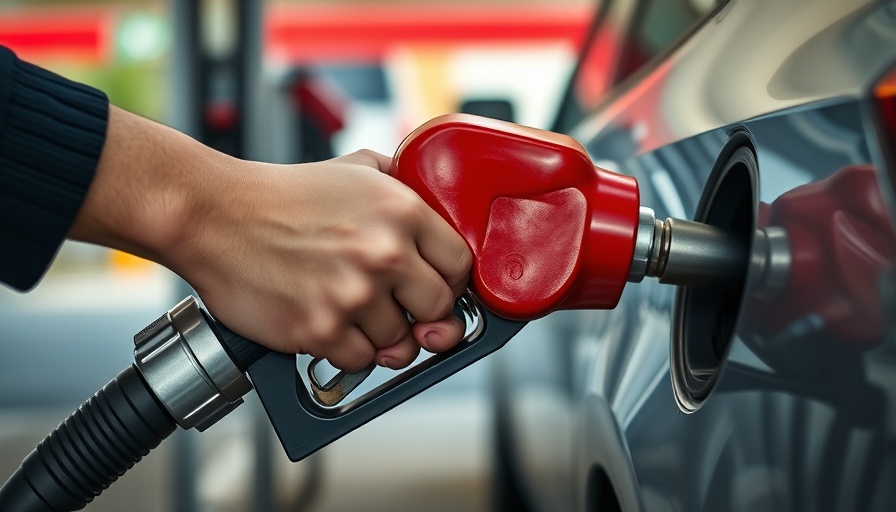
Why Can't New Jersey Drivers Pump Their Own Gas?
If you’ve ever wondered why New Jersey residents can’t pump their own gas while almost every other state allows it, you’re not alone. This long-standing law can be perplexing, especially for visitors from states where self-service is the norm. Understanding the reasons for this regulation provides insight into New Jersey's unique approach to fuel safety and customer service.
The Retail Gasoline Dispensing Safety Act
The fundamental reason behind New Jersey’s prohibition on self-service gas pumps dates back to the Retail Gasoline Dispensing Safety Act of 1949. Enacted in the wake of growing safety concerns, the law was designed to minimize fire hazards associated with gasoline dispensing. According to state officials, allowing attendants to manage fuel dispensing ensures compliance with vital safety measures like turning off vehicle engines and prohibiting smoking during refueling.
Safety Risks and Public Health Concerns
Safety isn’t the only concern that prompted the enactment of this law. New Jersey lawmakers aimed to protect the health of consumers by limiting exposure to gasoline fumes and the risk of injuries that could arise from inexperienced users operating gas pumps. These considerations underscore the state's commitment to public welfare.
The Role of Gas Attendants
Another key reason for maintaining this self-service restriction is the opportunity for gas attendants to check on essential vehicle maintenance. Attendants often remind customers about routine checks that might otherwise be ignored. With the rise of self-service gas stations nationwide, it’s easy for car owners to overlook important maintenance tasks, ultimately leading to costly repairs down the line.
Understanding the Cost of Gas
Gas prices in New Jersey have become a hot topic, especially when compared to neighboring states. Recent data reveals that the average price of regular gas in New Jersey stands at around $3.037. This price point is fairly competitive, notably lower than in neighboring New York and Pennsylvania. However, it's essential to remember that the wages paid to gas attendants do play a role in shaping these prices, which means New Jersey drivers might pay slightly more per gallon than in states where self-service is commonplace.
Should You Tip Your Gas Attendant?
While tipping is not typically expected, it is often appreciated. Gas stations face challenges in finding capable attendants willing to take on the job, so a gratuity for additional services—like windshield cleaning—is a nice gesture. Eric Blomgren, the executive director of the New Jersey Gasoline, C-Store, Automotive Association, mentions that while it’s not customary, putting a bit of cash in your attendant's hand shows appreciation for their service.
Comparing New Jersey to Other States
Understanding New Jersey's gas regulations also means comparing them with states that allow self-pumping. For instance, self-service stations can reduce operational costs and may lead to lower gas prices for consumers. Other states have cited efficiency and speed as significant benefits of allowing drivers to pump their own gas. However, New Jersey's strong focus on customer safety and comprehensive vehicle care has maintained the status quo.
Local Sentiments About the Law
The sentiment around New Jersey's gas-pumping law can be mixed. Many residents appreciate the personal touch that attendants provide, arguing that it enhances their overall experience at the pump. Others, however, express frustration with the delay during peak hours when they can’t simply fuel their vehicles independently. This ongoing conversation highlights how local regulations can reflect divergent opinions among citizens while balancing safety and convenience.
Conclusion
For residents of Pearl City and beyond, the unique gas-pumping laws of New Jersey serve as both a point of pride and a topic of contention. Understanding the history, safety implications, and social dynamics at play can foster a greater appreciation for this distinctive aspect of state culture. No matter how you feel about it, the New Jersey gas laws prompt intriguing conversations about convenience, safety, and modern convenience store operations.
Call to Action: Explore the local gas stations around you and consider how your fuel filling-up experience differs from others to appreciate your surroundings, or share your thoughts about convenience at the pumps on social media.
 Add Row
Add Row  Add
Add 




Write A Comment